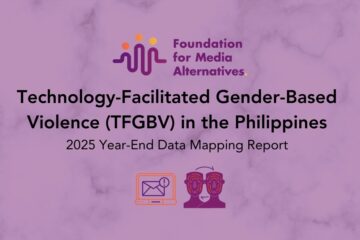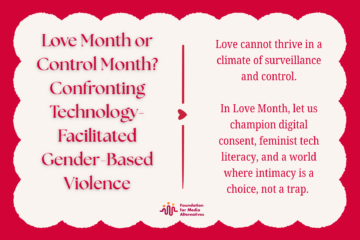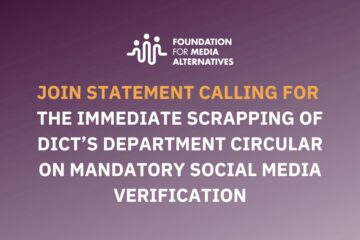Stop stifling free speech under the guise of COVID-19!
This year’s World Press Freedom Day takes on a special meaning around a world in quarantine.
Because of the COVID-19 pandemic, countries have been forced to go on lockdown, close borders, discourage physical contact and mass gatherings, and resort to other measures that may have the incidental effect of concentrating power to a few. Never has there been more opportunity for authoritarian leaders to consolidate the government’s might in order to stifle some essential freedoms — such as the right of movement and speech and expression — in the name of public health. Never has there been an opportunity to control the flow of information and skirt around public accountability for government failures.
In the Philippines, activists critical of the government especially are only too easily prosecuted for ‘illegal assembly’ for holding placards during relief operations, as is the case for those arrested by police in Marikina, or the overseas Filipino worker in Taiwan threatened to be deported by the Philippine government. Even student journalists’ freedoms are stamped on by barangay officials — in fact, local government officials take the lead in censoring posts and actions critical of the government, even if these fall squarely within free speech rights. Reporters have also been attacked by pro-government political activists.
The COVID-19 pandemic has also ushered in a ‘twin’ pandemic: a pandemic of disinformation, or an ‘infodemic,’ as defined by the World Health Organization, where false news about the virus may spread faster than the virus itself. This is made more challenging since a lot about the COVID-19 disease are uncertain, and even scientists do not profess to know everything about the virus. Where citizens now mainly rely on the internet for information, and where most interactions are made online, journalists are burdened to take on their responsibility to provide fair, accurate, and independent reports all the more seriously, with the added duty to provide context and balance.
Together with medical workers, security personnel, sanitation workers, journalists also serve as frontliners in this pandemic, risking their lives even more as they are among the most endangered in Southeast Asia. But they are also less free. In the 2020 World Press Freedom Index, the Philippines slipped by 2 notches from last year, now at 136 in 180 countries. The threat of infection from the SARS-COV-2 virus is just one of many threats journalists face at this time, when their services are all the more desperately needed.
How does the Philippines take on these challenges in the greater challenge of a pandemic? The Foundation of Media Alternatives believes that it is by emphasizing that basic human rights and journalistic standards are never suspended even during a pandemic, and that a free press mindful of its responsibility is a key element in any government plan to quell the effects of a pandemic. The Philippine government must recognize the important role of journalists in fighting this pandemic by ensuring that law enforcers and public officials perform their duties in a manner respectful of the right to free press.
In line with the global call for World Press Freedom Day this 2020 — journalism without fear of favor — we call on government and public officials, especially law enforcers, to ensure the safety of journalists and media workers. This does not only mean providing medical support to prevent contracting disease in their line of work, or providing for social benefits to account for hazards; but more so ensuring that journalists and media workers can do their jobs without fear of unlawful prosecution.
Critical and responsive reporting has never been more needed, and journalists, writers, and advocates can only fulfill this obligation hand-in-hand with a government that takes on a similarly fair and balanced response to the pandemic, responsive to the true needs of the Filipino people.



0 Comments